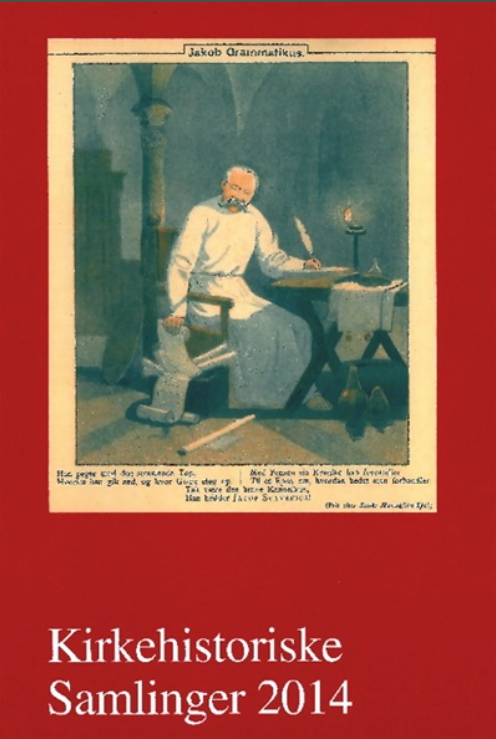Publiceret 15.12.2014
Citation/Eksport
Copyright (c) 2014 Tidsskriftet Kirkehistoriske Samlinger

Dette værk er under følgende licens Creative Commons Navngivelse – Ingen bearbejdelser (by-nd).
Resumé
Europæernes billede af omverden er præget af kristen mission – det er i hvert fald en velbegrundet formodning, som da også er fremsat i flere værker. Hvordan og i hvilken udstrækning er til gengæld kun i mindre grad blevet undersøgt. Den nylige digitalisering af dele af Danmarks Radios arkiver har gjort det muligt at opspore de missionsrelaterede udsendelser, som den danske offentlighed løbende er blevet præsenteret for. En analyse af programoversigterne fra 1925 til og med 1965 tegner et billede af ydre mission som en væsentlig og autoritativ formidler af verden uden for Europa og USA. Igennem fremstillingen af missionen og dens arbejde i kolonierne/de gradvist selvstændige stater blev lyttere og seere bl.a. præsenteret for aktuelle missionsteologiske debatemner og argumenter for at engagere sig i Afrika, Asien og Oceanien – længe før u-landsoplysningen.
Summary
The article explores what role foreign mission has played in the presentation of the non-Western world in the Danish radio and television from the founding of the Danish Broadcasting Corporation (Danmarks Radio) in 1925 until the end of 1965. Only very few recordings of the programs of that period exist today, and the content of the programs is therefore analysed on the basis of the descriptions in the radio guides which the research and archival project Larm.fm has made digitally available in a version searchable by optical character recognition (OCR) – supplemented with secondary material (textual reproduction of broadcasts elsewhere, biographical information, etc.).
The most obvious tendency throughout the period is the seriousness and loyalty with which mission was presented in the broadcasting. It points to a special status for mission as being – especially before the World War II – the largest organized Danish connection with the non-Western world. This role was gradually transformed, as the role of missionaries in the programs changed from that of experts in specific countries in a very limited overall coverage of the non-Western world to the role of individual practitioners. At the same time the image of a world mission movement gradually moved in the background in favour of topics and issues that were also part of the growing secular development aid, such as health and education. In this process mission as such changed from being an acknowledged social commitment to a theological pursuit under pressure. The impression is that these changes took place as decolonisation reached the ‘mission fields’, and underlying some of these themes one clearly observes the emergence of a secular, state-financed development aid that set a new agenda and created a much larger field of experts and issues in relation to the developing world. A test sample of other themes from the broadcasting of the period with relation to the non-Western world indicates that the foreign mission was associated with a significant part of the total number of broadcasts about the countries where the mission organisations worked. It was only from the post-war period and especially from around 1960 that mission seriously lost ground as a central mediator between the West and a series of countries in the non-Western world – at the same time as the number of such broadcasts grew considerably.
In the long series of broadcasts, which treat missionaries and the ‘mission field’, the former appear as representatives of the familiar in the exotic world. And along with the more theoretical and theological issues, mission in the Danish Broadcasting Corporation presents a range of perspectives on Denmark’s relations with the colonies and later the new states gradually emerging in the South. This demonstrates a continuous impact, where the missionary movement was able to get its concerns, ideology and image of the countries in which the individual organisations worked, communicated without objectivity of it being seriously challenged.

